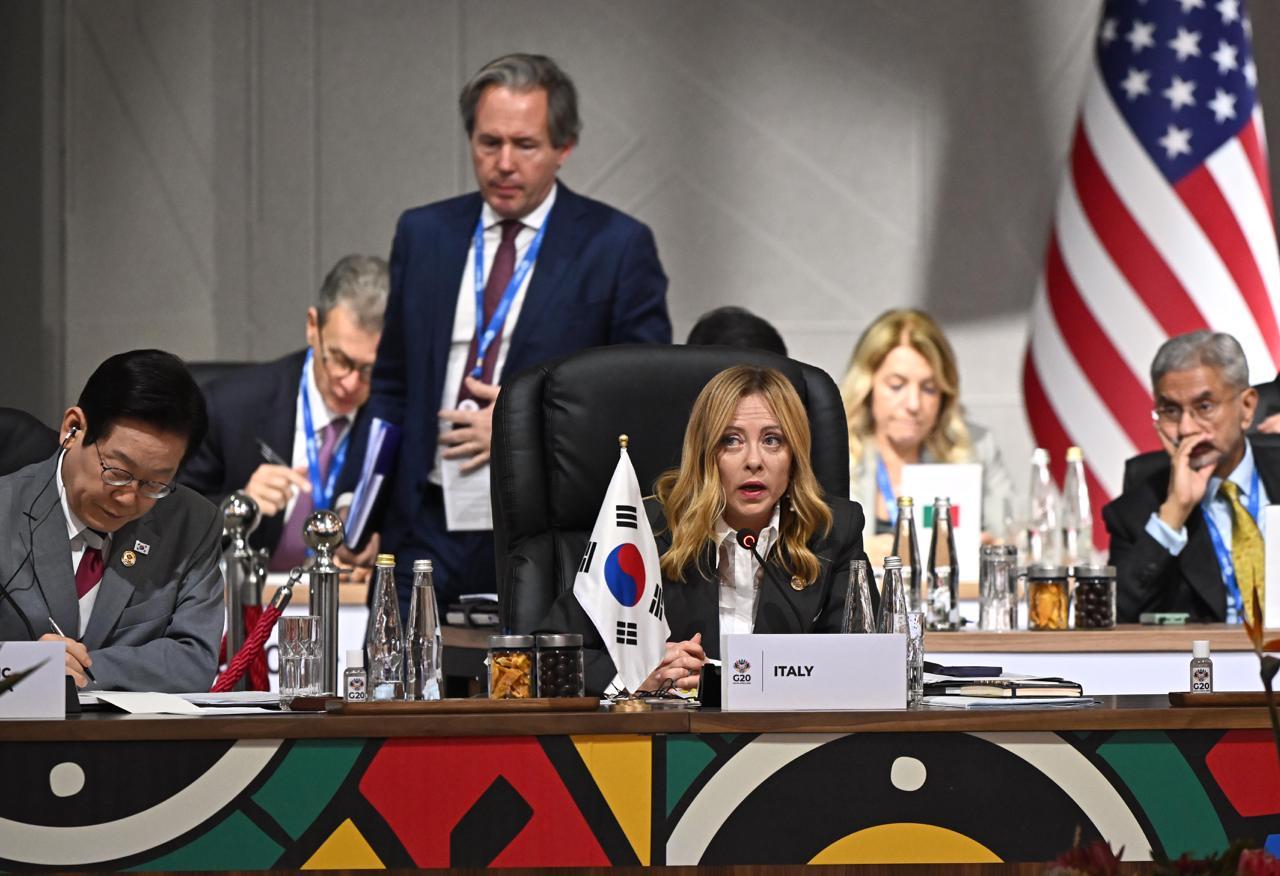
The G20 summit in South Africa adopted its leaders’ declaration on Saturday without the participation or approval of the United States, triggering sharp criticism from Washington and highlighting tensions between Pretoria and the Trump administration.
South African President Cyril Ramaphosa’s spokesperson said the text, drafted without US involvement, “cannot be renegotiated.”
He noted that negotiations had stretched across the entire year, with the last week “quite intense.”
Ramaphosa earlier emphasized there was “overwhelming consensus” among participating leaders.
However, at the final moment, Argentina, whose President, Javier Milei, is a close ally of Donald Trump, withdrew from endorsing the declaration, citing concerns over references to geopolitical issues, including the Middle East.
Despite Argentina’s refusal, Ramaphosa proceeded, saying sufficient consensus had been reached.
Argentina’s foreign minister, Pablo Quirno, said his country supported G20 cooperation but objected to how the text addressed the “longstanding Middle East conflict.”

The White House condemned the move, accusing South Africa of undermining G20 principles.
Spokeswoman Anna Kelly said Ramaphosa was “refusing to facilitate a smooth transition of the G20 presidency” after indicating he would pass the gavel to “an empty chair” in response to the US boycott.
U.S. officials boycotted the summit after Trump accused South Africa’s government of persecuting its white minority, a claim widely discredited.
The adopted declaration includes strong language on climate change, renewable energy expansion, and debt burdens faced by poorer nations—terms Washington has repeatedly rejected.
The mention of climate change was seen as a direct challenge to Trump, who opposes referencing human-caused global warming in multilateral documents.

Ramaphosa underscored the importance of the continent’s first G20 presidency, insisting no disagreements should “diminish the value, stature, and impact” of the moment.
China’s Premier Li Qiang called for unity, urging the G20 to return to “the right track of unity and cooperation.”
Meanwhile, EU Commission President Ursula von der Leyen warned against the “weaponization of dependencies,” a remark widely viewed as aimed at China’s export curbs on critical minerals.
South Africa also rejected a U.S. proposal to send its chargé d’affaires for the official G20 presidency handover.
“The president will not hand over to a junior embassy official,” spokesperson Vincent Magwenya said. “America chose to boycott the summit. That’s their choice.”
The United States is set to host the G20 in 2026.